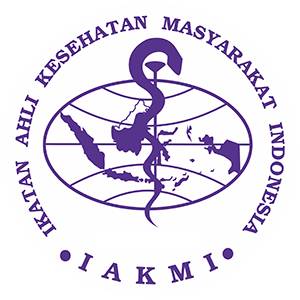Contribution of Premature Baby (the Low Birth Weigh) towards Postpartum Depressed Mother
DOI:
https://doi.org/10.30787/gaster.v20i1.727Keywords:
Postpartum, Depression, Birth WeighAbstract
Postpartum depression is a common phenomenon and has the complexities which bringing on adverse consequence for mother, baby, and family. The reference of this research provides an overview of the various risk factors for postpartum depression. This research is aimed to identify various risk factors such as level of depression, postpartum type, husband’s support, baby weight, parity and number of children. Those factors can be the cause of postpartum. Women with postpartum depression who have the baby in low weight can be identified as the strongly predictor factor of postpartum depression cause. The method applied in this research is an observational research with cross sectional design which involving 75 postpartum mothers who having live babies. Data analysis is conducted by chi-square that presents the correlation of baby in low weight and the incidence of depression indicated on p value less than 0,05. Data are collected at once time. Result shows that there is a correlation of childbirth type, social support, baby weight, and parity toward the incidence of postpartum depression. This research provides a crucial reference about mother with postpartum depression that can be caused by the birth of low baby weigh. For further researchers, it can be an insight for analysis as the effort of baby and mother care in case to prevent the postpartum depression.
References
Akter, M. (2019). Physical and Psychological Vulnerability of Adolescents during Pregnancy Period as Well as Post Traumatic Stress and Depression after Child Birth. Open Journal of Social Sciences, 07(01). https://doi.org/10.4236/jss.2019.71015
Astri, R., Fatmawati, A., & Gartika, G. (2020). Dukungan Sosial Pada Ibu Postpartum Primipara Terhadap Kejadian Postpartum Blues. Jurnal Kesehatan Perintis (Perintis’s Health Journal), 7(1), 16–21. https://doi.org/10.33653/jkp.v7i1.417
Edwards, G. D., Shinfuku, N., Gittelman, M., Ghozali, E. W., Haniman, F., Wibisono, S., Yamamoto, K., Miyaji, N. T., & Rappe, P. (2006). Postnatal depression in Surabaya, Indonesia. International Journal of Mental Health, 35(1), 62–74. https://doi.org/10.2753/IMH0020-7411350105
Fatmawati, A., Gartika, N. (2019). Hubungan Dukungan Sosial Dan Perencanaan Kehamilan Dengan Kejadian Postpartum Blues Pada Ibu Remaja. Jurnal BIMTAS: Jurnal Kebidanan Umtas. https://drive.google.com/file/d/1AmlzHPLcFoTIb-fmm0QljQmDAgEueCH8/view
Iwata, H., Mori, E., Sakajo, A., Aoki, K., Maehara, K., & Tamakoshi, K. (2016). Prevalence of postpartum depressive symptoms during the first 6 months postpartum: Association with maternal age and parity. Journal of Affective Disorders, 203, 227–232. https://doi.org/10.1016/j.jad.2016.06.002
Kartikawati, R. S. (2019). Analysis Of Factors Affecting The Premature Labor. Journal for Quality in Public Health, 3(1), 122–129. https://doi.org/10.30994/jqph.v3i1.55
Kusuma, R. (2019). Karakteristik Ibu Yangmengalami Depresi Postpartum. Jurnal Ilmiah Universitas Batanghari Jambi, 19(1), 99. https://doi.org/10.33087/jiubj.v19i1.571
Mahmudah, U., Cahyati, W. H., & Wahyuningsih, A. S. (2013). Jurnal Kesehatan Masyarakat. Jurnal Kesehatan Masyarakat, 8(2), 113–120. https://doi.org/ISSN 1858-1196
Marasco, V., Robinson, J., Herzyk, P., & Spencer, K. A. (2012). Pre- and post-natal stress in context: Effects on the stress physiology in a precocial bird. Journal of Experimental Biology. https://doi.org/10.1242/jeb.071423
Maryatun. (2020). Kontribusi Status Rawatan Bayi Terhadap Risiko Depresi Pada Ibu Pasca Bersalin. Jurnal Kebidanan, XII(02), 3. http://www.ejurnal.stikeseub.ac.id
Masruroh. (2015). Jurnal Edu Health. 5(2).
Nasri, Z., Wibowo, A., & Ghozali, E. W. (2017). Faktor Determinan Depresi Postpartum di Kabupaten Lombok Timur Determinants Factors of Postpartum Depression in East Lombok. Buletin Penelitian Sistem Kesehatan, 20, No. 3, 89–95.
Nichols, M. R., Roux, G. M., & Harris, N. R. (2007). Primigravid and Multigravid Women: Prenatal Perspectives. Journal of Perinatal Education, 16(2), 21–32. https://doi.org/10.1624/105812407x192019
Ningrum, S. P. (2017). Faktor-Faktor Psikologis yang Mempengaruhi Postpartum Blues. Psympathic : Jurnal Ilmiah Psikologi, 4(2), 205–218. https://doi.org/10.15575/psy.v4i2.1589
Rus Prelog, P., Vidmar Šimic, M., Premru Sršen, T., & Rus Makovec, M. (2019). Contextual-relationship and stress-related factors of postpartum depression symptoms in nulliparas: A prospective study from Ljubljana, Slovenia. Reproductive Health, 16(1). https://doi.org/10.1186/s12978-019-0810-x
Rusli, R. A., Meiyuntariningsih, T., & Warni, W. E. (2011). Perbedaan Depresi Pasca Melahirkan pada Ibu Primipara Ditinjau dari Usia Ibu hamil. 13(01), 21–31. http://www.journal.unair.ac.id/filerPDF/artikel 3-13-1.pdf
Sari, R. A. (2020). Literature Review: Depresi Postpartum. Jurnal Kesehatan, 11(1), 167. https://doi.org/10.26630/jk.v11i1.1586
Smorti, M., Ponti, L., & Pancetti, F. (2019). A Comprehensive Analysis of Post-partum Depression Risk Factors: The Role of Socio-Demographic, Individual, Relational, and Delivery Characteristics. Frontiers in Public Health, 7(October), 1–10. https://doi.org/10.3389/fpubh.2019.00295
Suryati, the B. B. and P. D. (2008). the Baby Blues and Postnatal Depression. Jurnal Kesehatan Masyarakat Andalas, 2(2), 191. https://doi.org/10.24893/jkma.2.2.191-193.2008
Sylvén, S. M., Thomopoulos, T. P., Kollia, N., Jonsson, M., & Skalkidou, A. (2017). Correlates of postpartum depression in first time mothers without previous psychiatric contact. European Psychiatry, 40, 4–12. https://doi.org/10.1016/j.eurpsy.2016.07.003
Wahyuni, S., Anies, Soejoenoes, A., & Putra, S. T. (2018). Perceived stress dan sindrom depresi pada ibu primigravida. Jurnal Ilmiah Bidan, III(2), 21–28.
Wardani, P. (2009). Faktor-Faktor Penyebab Depresi Pasca Melahirkan. 0–7.













